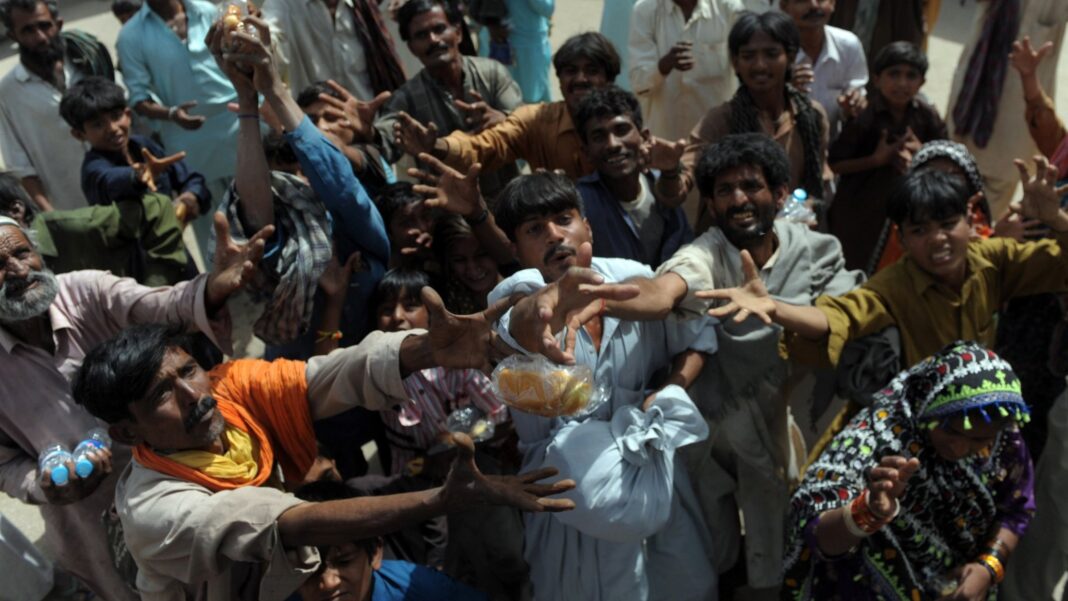NEWS DESK
ISLAMABAD: Annelotte Walsh, the Director Research, Centre for Asian Philanthropy and Society (CAPS), has said that ability of Social Delivery Organization (SDOs) to receive funding is marred by recent controversies and a burdensome regulatory environment in Pakistan, as there exists a lack of trust among donors, non-governmental organizations, and government.
She was speaking at the launch of a report titled: The Doing Good Index 2022: Assessing the health and well-being of Asia’s social sector, organized by Sustainable Development Policy Institute (SDPI) in collaboration with Pakistan Centre for Philanthropy (PCP) and Centre for Asian Philanthropy and Society (CAPS) here.
She said 75% SDOs find registration and certification process complicated while 28% reported difficulties in recruiting and retaining staff, compared to the Asian average of 55%. She added that 53% SDOs witnessed increase in demand for their services and faced decrease in their fundings.
She further said the study exposes underlying structural conditions preventing the region’s social sector from thriving and identifies opportunities for government, companies, philanthropists, and SDOs to tap resources and work together to cope with social and environmental challenges.
She recommended improving regulations and holding accountability of SDOs to mitigate lack of trust among stakeholders. She also suggested improving and simplifying registration process while making it less time consuming.
Dr Sajid Amin, Deputy Executive Director, SDPI said that the report is data-rich on conduciveness of national environment for philanthropy and presents an in-depth cross-national analysis. He appreciated the role of PCP for providing a thrust to civil society and charity organizations. He said that COVID-19 provided a much-needed impetus to philanthropy and private charity was first to provide relief to most vulnerable segments and was higher and more effective than fiscal stimulus by the government.
Shazia Maqsood, Executive Director, PCP said that the data collected for this report revealed that an enabling environment can be pegged with economic development and prosperity, as we see in the case of Singapore and Taiwan. She said that it was proved during COVID-19 and recent floods that “a quick start of relief efforts is effective through NPOs, and delivery could be seen reaching at grass roots level”. She urged the government to make regulatory procedures swift and flexible so that the NPOs might perform effective and smooth operations.
Ali Kemal, Chief of Federal SDG Support Unit, Ministry of Planning Development and Reforms, stressed the need for rationalizing regulations. He said that Benazir Income Support Programme (BISP) had identified out-of-school children; baseline data is available and now implementation is required. He said the key issue in achieving Sustainable Development Goals (SDGs) is coordination among stakeholders.
Naveed Mukhtar, a senior official of Federal Bureau of Revenue, apprised the audience about the conditions which enable NPOs to avail tax incentives and tax exemptions in various operations.
Dr. Sabira Qureshi, Management Trustee, JAQ Education Trust, stressed that “with 22.8 million out-of-school children in the country, the government must think of public-private partnerships”. She said that recently the government has devised various strategies for service delivery, including outsourcing. She called for going beyond these structures to enhance the role of NPOs which have the ability to experiment and innovate. She urged the government to collaborate for pilot initiatives and innovative ideas so as to improve the standard of education.
Dr Amjad Saqib, Chairman of Akhuwat, said that despite economic slowdown during COVID-19, and after recent floods, the entire nation demonstrated generosity and philanthropy. He called for finding ways to estimate and enhance the role of philanthropy done by individuals for strengthening the ecosystems. He also emphasized on a close collaboration and trust between civil society, and public-private sector to establish an enabling environment for NPOs for the welfare of vulnerable groups. He said that the government do not realize the role of NPOs and their potential albeit their reach.



